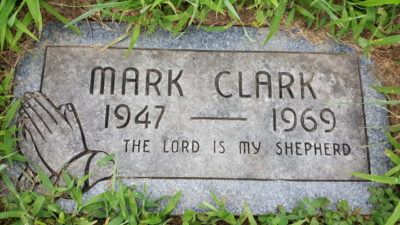51 years ago Fred Hampton, Chairman of the Illinois Chapter of the Black Panther Party, and Mark Clark, Black Panther Leaders Defense Captain from Peoria, IL died at the hands of Chicago Police. Killed by Chicago police in an early morning raid, the police said the killing was in self-defense and ruled justified homicides.
Each year, Chairman Fred Hampton, Jr., his mother, Mama Akua Njeri, formerly Deborah Johnson, and supporters hold vigils at the police raid site at 2337 W. Monroe Street to honor and memorialize their deaths, and all revolutionaries, past and present. Due to the pandemic, the International Revolutionary Day was held virtually.
 Before the virtual event, there was a five-minute social distance clenched fist salute for Hampton and Clark at the murder site. The original apartment building was torn down years ago and replaced by a brick two-flat building.
Before the virtual event, there was a five-minute social distance clenched fist salute for Hampton and Clark at the murder site. The original apartment building was torn down years ago and replaced by a brick two-flat building.
Hampton, Jr., and Njeri, along with Attorney James Montgomery, participated in a panel discussion, “Conversation at DuSable Museum,” this summer moderated by Professor Kim Dulaney. They spoke about Fred Hampton’s life. Fred Hampton, Jr. said, “I feel fortunate to have fallen from the tree of two revolutionaries.” Attorney Montgomery described Hampton’s charisma as electrifying, a master orator, and a true revolutionary. “Every time you looked at him, he always had a paperback book in his back pocket. Always trying to do what he could to make things better. He was courageous.”
Njeri talked about how she met Hampton at Wilbur Wright College, where she was a student and a Black Student Union member. Njeri love writing about poetry and had her poetry book with her at an event at the college. “I went up to Chairman Fred and said, Excuse me, Brother Chairman, what do you think about poetry? He said, “Well, if poetry, art, or anything of that stuff doesn’t relate to the needs of the people, we don’t need it. I hid my book behind my back and said, “Me neither, brotha,” Njeri said in laughter.” “Chairman Fred called me, and I kept coming to the office, and the rest is history, Njeri said”
Njeri also discussed that fatal night of December 4, 1969. Hampton came home for a meeting and fell asleep while talking on the phone, which was usual. When Fred Hampton’s body was exhumed for an independent autopsy, it revealed he was drugged with secobarbital. This drug is able to completely knock out a horse.
While asleep, a black panther rushed into Hampton’s bedroom, stating that the police were there. As bullets were being fired, Njeri, who was 8 ½ months pregnant, immediately moved on top of Hampton. Hampton made the only movement to lift his head up slowly and laid back down as bullets were being shot at the window.
When the police found out there was a pregnant woman in the apartment, they stopped shooting momentarily. Njeri moved off on top of Hampton and was wearing Hampton’s robe, long johns, and house shoes. She had no blood on her, which indicated Hampton had not been shot. As Njeri was walking through two police officers’ lines, she was trying to remember police badge numbers, what their noses look like, but she couldn’t remember those details. The police grabbed her by her hair and slung her into the kitchen. While in the kitchen, the shooting started up again. She heard someone said, “He’s barely alive, he’ll barely make it,” and then, after a few more shots, she heard, “He’s good and dead now.”
As Njeri was handcuffed and escorted from the kitchen, she saw Mark Clark lying on the floor in a blood pool. She was arrested and charged with attempted murder and aggravated assault against the police.
Attorney Montgomery became involved in the Hampton v. Hanrahan case. After an 18 month trial and subsequent appeal, the case settled for 1.8 million dollars.
 The last on-line event of International Revolutionary Day was a wrap-up discussion moderated by Leila Wills.
The last on-line event of International Revolutionary Day was a wrap-up discussion moderated by Leila Wills.
The Hampton House, located at 804 S. 17th Avenue in Maywood, IL, was Chairman Fred Hampton’s childhood home. The Hampton family left Louisiana and moved to the Maywood home in 1958. Monies are being raised to protect, preserve, rehabilitate, and seek landmark status. The plan is to establish the home as a museum and community resource center.
To donate to Save the Hampton House, go to https://www.gofundme.com/f/SaveTheHamptonHouse51.
To learn more about The Hampton House, go to https://www.thehamptonhouse.org/.
Gloria Clark Jackson, the younger sister of Mark Clark, leader of the Peoria branch of the Black Panther Party, and author of the book “Mark Clark: Soul of a Black Panther,” discusses Clark’s childhood, her membership in the Black Panther Party under her brother’s leadership, accurately recounts why Mark was in Chicago on that fatal night, December 4, 1969, that led to the death of her brother and Fred Hampton, and confidential information that may have been overlooked or covered up.
 Jackson is the founder and CEO of Activist Mark Clark, a private non-government business wholly owned by Justice Publishing Company. The organization mentors at-risk youth between the ages of 5-18 and enrichment services in the Peoria, IL area. To learn more about the organization and the legacy of Mark Clark, go to https://activistmarkclark.org/.
Jackson is the founder and CEO of Activist Mark Clark, a private non-government business wholly owned by Justice Publishing Company. The organization mentors at-risk youth between the ages of 5-18 and enrichment services in the Peoria, IL area. To learn more about the organization and the legacy of Mark Clark, go to https://activistmarkclark.org/.
To purchase “Mark Clark: Soul of a Black Panther,” go https://www.amazon.com/dp/B08CPJJFNZ/.
Tammy Gibson is a travel historian, author, and writer. Find her at www.sankofatravelher.com, Facebook, Instagram @SankofaTravelher, and Twitter @SankofaTravelHr.